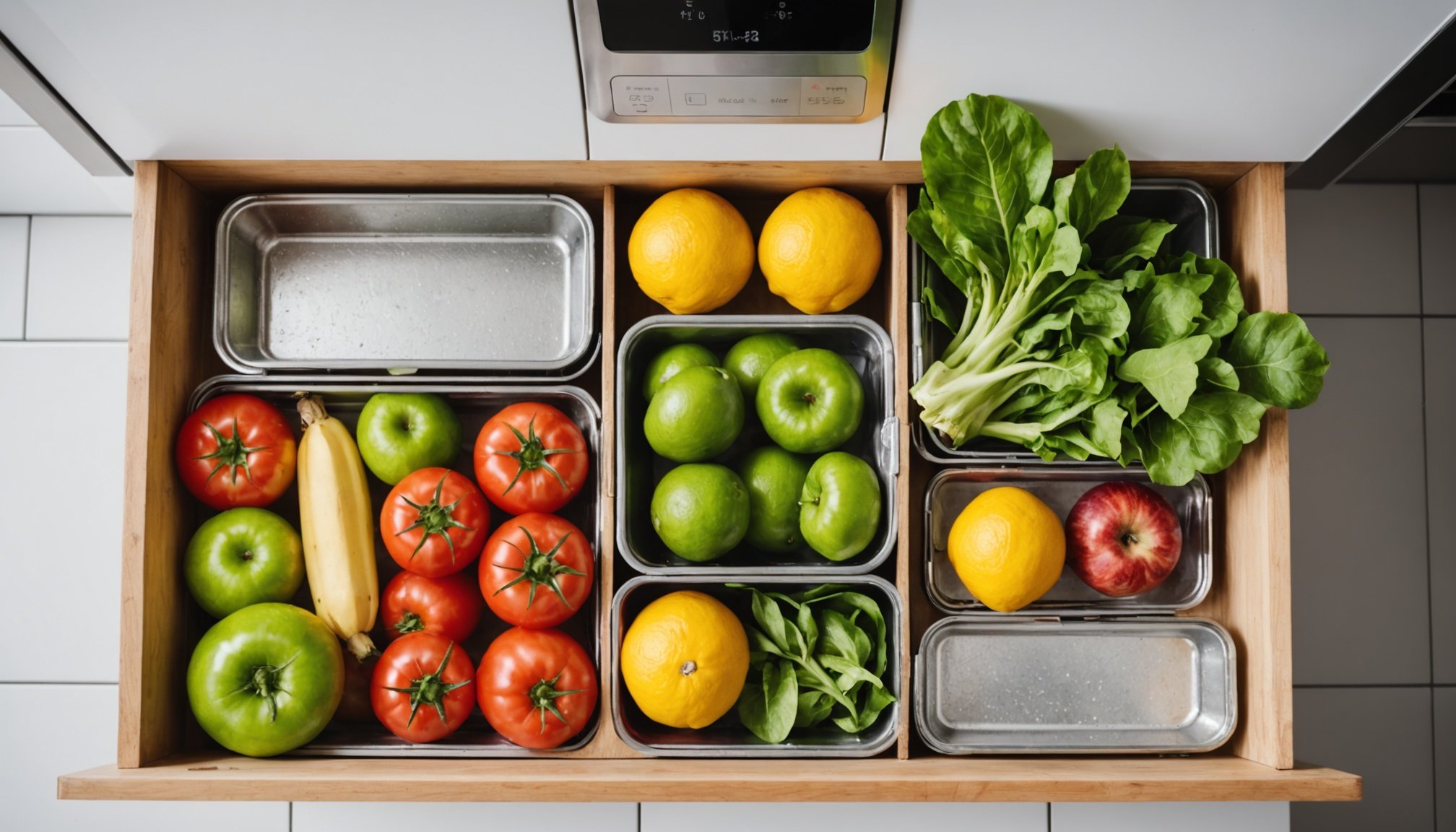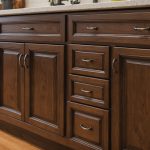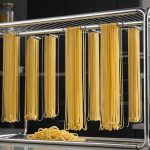Understanding Eco-Friendly Kitchen Designs
Eco-friendly kitchens are increasingly becoming popular as people focus on sustainable living. Green design principles can be applied to UK kitchens by utilising sustainable materials such as bamboo, recycled glass, or reclaimed wood. These materials not only reduce environmental impact but also lend a unique aesthetic to the kitchen space.
A key aspect of eco-friendly kitchen design is its emphasis on sustainability. When renovating, consider energy-efficient appliances that help lower utility bills and reduce carbon footprint. Incorporating natural lighting and proper insulation can further enhance energy efficiency. Furthermore, using low-VOC paints and sustainable cabinetry can improve indoor air quality significantly.
This might interest you : The ultimate guide to selecting ideal kitchen flooring for your uk coastal home
Reducing food waste is another vital component of an eco-friendly kitchen. Thoughtful design can facilitate more efficient storage solutions like composting bins and strategic placement of pantry items. This helps in preserving food for longer periods, reducing waste effectively.
Embracing eco-friendly design not only benefits the environment but can also improve your family’s health. It encourages resourcefulness and thoughtful consumption, aligning your kitchen not just with current trends, but with a vision of a more sustainable future. By adopting these practices, UK homeowners are setting a powerful example of responsible living.
In parallel : Revamp your uk kitchen: the ultimate step-by-step guide to designing a chic and functional breakfast bar
Innovative Solutions for Reducing Food Waste
Addressing food waste management is becoming essential in modern households. One effective method is smart storage solutions, which help keep track of expiration dates and reduce waste. These technologies involve connecting kitchen appliances like refrigerators to apps that alert users when food items are nearing their end. This not only minimises waste but also aids in efficient inventory management.
Incorporating kitchen composting systems is another vital approach. These systems range from simple under-sink compost bins to more advanced electric composters. They allow households to convert organic waste into nutrient-rich compost, promoting sustainability. Integration of such systems into kitchen design makes composting an effortless daily habit and addresses waste at its source.
Furthermore, technology plays a pivotal role in food tracking. Smart devices equipped with sensors can monitor freshness and automatically adjust storage conditions to prolong shelf life. These solutions are especially beneficial for busy individuals seeking to maintain an organised, waste-free kitchen environment.
The blend of smart storage, composting, and technological advancements offers a comprehensive approach to tackling food waste, ensuring resources are utilised efficiently. Households embracing these innovations not only contribute to environmental sustainability but also enjoy enhanced kitchen functionality.
Eco-Friendly Materials for Kitchen Renovations
Navigating kitchen renovations with a focus on sustainable materials offers both aesthetic and environmental benefits. The UK market provides various options, such as recycled glass countertops, bamboo cabinetry, and reclaimed wood flooring. These materials not only enhance the beauty of your kitchen but also serve an eco-conscious purpose by conserving resources and reducing waste.
Utilising renewable resources in kitchen design carries multiple advantages. For instance, bamboo grows rapidly, making it an excellent choice for flooring and cabinets. Cork, harvested without damaging trees, provides a unique and durable surface for floors or countertops. These renewable resources ensure that your kitchen renovation minimizes its carbon footprint, promotes biodiversity, and supports responsible forestry practices.
Incorporating eco-friendly finishes also plays a critical role in kitchen sustainability. Low-VOC paints and finishes improve indoor air quality while maintaining a vibrant look. Additionally, natural sealants made from materials like beeswax can protect surfaces and reduce dependency on chemical products. By choosing these eco-friendly finishes, you can contribute to food waste reduction as they encourage a cleaner, healthier environment for food preparation and storage. Integrating these diverse materials and finishes in your kitchen not only transforms the space but promotes an environmentally responsible lifestyle.
Case Studies of Transformed UK Kitchens
In recent years, numerous UK kitchens have been transformed through sustainable design practices. These renovations not only breathe new life into homes but also address environmental concerns. Let’s delve into some fascinating kitchen renovation examples that highlight successful transformations with a focus on sustainability.
One notable UK kitchen renovation displayed significant impact on food waste reduction. By incorporating composting systems and energy-efficient appliances, the household dramatically decreased its footprint. This innovative project serves as a testament to the transformational power of thoughtful design.
Another case study reveals a modern update where reclaimed materials were integral to the process. The kitchen’s aesthetic was artfully enhanced, proving that style and sustainable design can coexist. Each renovation brought unique lessons, illustrating the value of creativity and sustainable choices in achieving both functionality and environmental responsibility.
A consistent theme across these examples is the use of renewable resources and clever space utilisation. By repurposing underused areas and introducing smart storage solutions, these kitchens not only looked great but functioned more efficiently than ever before. These successful transformations stand as a source of inspiration and demonstrate the profound impact of integrating sustainable practices into kitchen design.
Local Suppliers and Resources for Eco-Friendly Appliances
Exploring eco-friendly kitchen suppliers in the UK can significantly enhance your home’s sustainability. Various local suppliers specialise in offering sustainable appliances that reduce environmental impact. These companies focus on ethical production and energy efficiency, integral aspects of making a kitchen eco-conscious.
For those seeking to make a green transition, consider exploring store chains and independents known for their eco-friendly ranges. Some top recommendations include businesses that manufacture kitchen fixtures from recycled or sustainably sourced materials. These materials not only contribute to reducing your carbon footprint but can also add a unique aesthetic to your kitchen.
Accessing additional UK resources for green kitchen design is easy with numerous informative platforms available. These resources offer in-depth guides on selecting energy-efficient appliances and eco-friendly materials, helping you make informed choices.
To optimize your kitchen’s environmental performance, consider these sustainability tips:
- Choose appliances with high energy ratings.
- Opt for fixtures made from renewable or recycled materials.
- Regularly update your knowledge with resources focused on the latest green technologies.
By integrating sustainable choices, you contribute positively to the environment while enjoying modern kitchen convenience.











